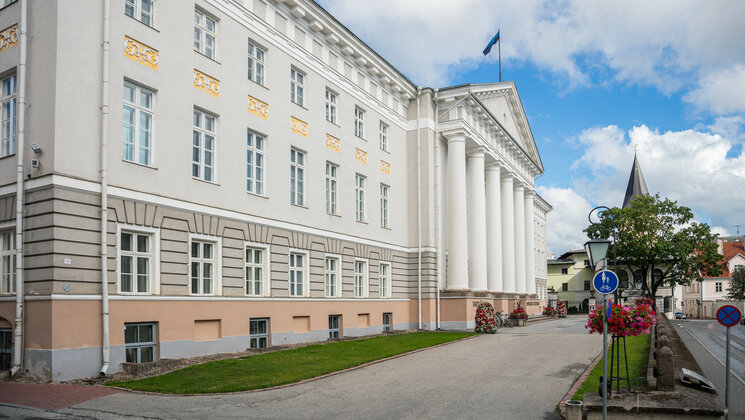Millennials might prefer to live abroad due to Eastern European mentality in Estonia
Although economic conditions may prevent young people who have moved abroad from returning to Estonia, they are also deterred by values perceived as Eastern European, write researchers from the University of Tartu in Novaator. However, most young people who have moved across the border still consider it important to identify as Estonian.
The so-called Generation Y came of age after Estonia joined the European Union. According to Terje Toomistu, a researcher in ethnology at the University of Tartu, it is now the norm for this generation to go abroad for studies or work for a while. „Interestingly, identifying oneself as Estonian remains very important among young people living abroad. Over 80 percent of them consider it significant, surpassing all other categories of affiliation proposed in the survey,“ she points out.
In recent years, Toomistu and her colleagues at the University of Tartu have studied the migration of Generation Y. „As a researcher, I was particularly interested in what influences the decision to stay in a foreign country or return to Estonia,“ she recalls.
The study, which included online surveys and interviews, indicated that young people primarily leave due to a desire to see the world: 90 percent of respondents cited this as a reason. Over a third of the respondents sought better living conditions and salaries abroad. Approximately the same number were driven abroad by personal reasons.
„Those who had already returned most commonly mentioned a desire to come back to their homeland,“ states Toomistu. However, it is unclear whether this desire is driven by strong national identity feelings or simply the wish to return to a familiar environment. „Probably, for many people, it is a combination of different factors,“ the researcher reflects.
Song festival versus jealousy
According to Terje Toomistu, young Estonians living abroad experience conflicting feelings when thinking about Estonia. Researchers have termed this „affective contradiction“. „On one hand, there is a sense of pride, longing and a warm feeling of home. They often have romanticized images of their grandparents' homes, Estonian forests, bogs and song festivals. At the same time, they also experience other kinds of feelings, such as shame, alienation or disappointment,“ she compares.
The young people studied admitted in surveys and interviews that certain aspects of the Estonian value space, sometimes referred to as the „Eastern European mentality“, cause disappointment, shame and sometimes even anger.
„The subjects described, for example, attitudes towards minorities: ethnic minorities, foreigners or sexual minorities. They mentioned sexist and patriarchal attitudes, rude or grumpy people on public transport and even a mentality of not wishing well for others – envy when someone else is doing well,“ she lists.
„For instance, one interviewee said outright, 'I would come back to Estonia for the song festivals, my family, language and culture, but I wouldn't come back because of the society.' When I asked what specifically about the society bothered him, he mentioned the 'Eastern European mentality,'“ the researcher describes. Thus, the image of Estonian society portrayed partly through the media also influences the considerations of young Estonians living abroad about returning.
The presence of these conflicting feelings related to Estonia reflects a global hierarchy in which the young people studied grew up: everything Western is considered normal, while Eastern European aspects are shamed because they are associated with the Soviet era.
„Let's start with an article example where a person tries to describe to their English colleagues where Estonia is located. On the imaginary map, they deliberately omit Russia, but emphasize the proximity to Finland and Sweden,“ illustrates Toomistu. This reflects a desire to align their origins closer to the Nordic countries and distance them from the rest of Eastern Europe. Thus, an Estonian migrant might feel offended if someone mistakenly thought they were, for example, Polish.
However, the researchers noticed differences among individuals with different values in how they associated themselves with broader regional categories. „People who held more instrumental values and worked in areas like business tended to consider themselves more Western European,“ the researcher points out. Those who valued being Eastern European tended to be people with more social values.
Migration policy does not exist in a vacuum
According to Terje Toomistu, the migration of young people is fluid: they may return and then leave again or often visit Estonia. Some people may have multiple homes simultaneously. „Interestingly, it was found that a high number of connections to Estonia does not necessarily influence actual return. However, connections are important for maintaining the vision of a possible return in the future,“ notes the researcher.
The study revealed that the initial reasons for leaving play a significant role in deciding to return to Estonia. „It turned out that those who left for economic reasons are much less likely to return compared to those who left for professional considerations or a desire to see the world. Thus, the main factor preventing the return of young people still abroad is the fear of economic viability. There is a fear that returning to Estonia would not offer sufficient salary or living conditions,“ states Toomistu.
Toomistu suggests that one of the key messages of the study is that diaspora policy cannot focus solely on migration issues. „Migration policy needs to be part of a broader policy implemented in Estonia,“ she points out. Moreover, with free labor movement in the European Union, every person has the opportunity to decide their own place of residence.
„If we want Estonia to truly have people who create value here, we need to make the living conditions sufficiently attractive – so that a person could cope on their own, find it culturally interesting, and the societal value space would be what one would expect from their home region in the third decade of the 21st century.“
Terje Toomistu and colleagues write about their studies in Migration Studies and Journal of Baltic Studies.


